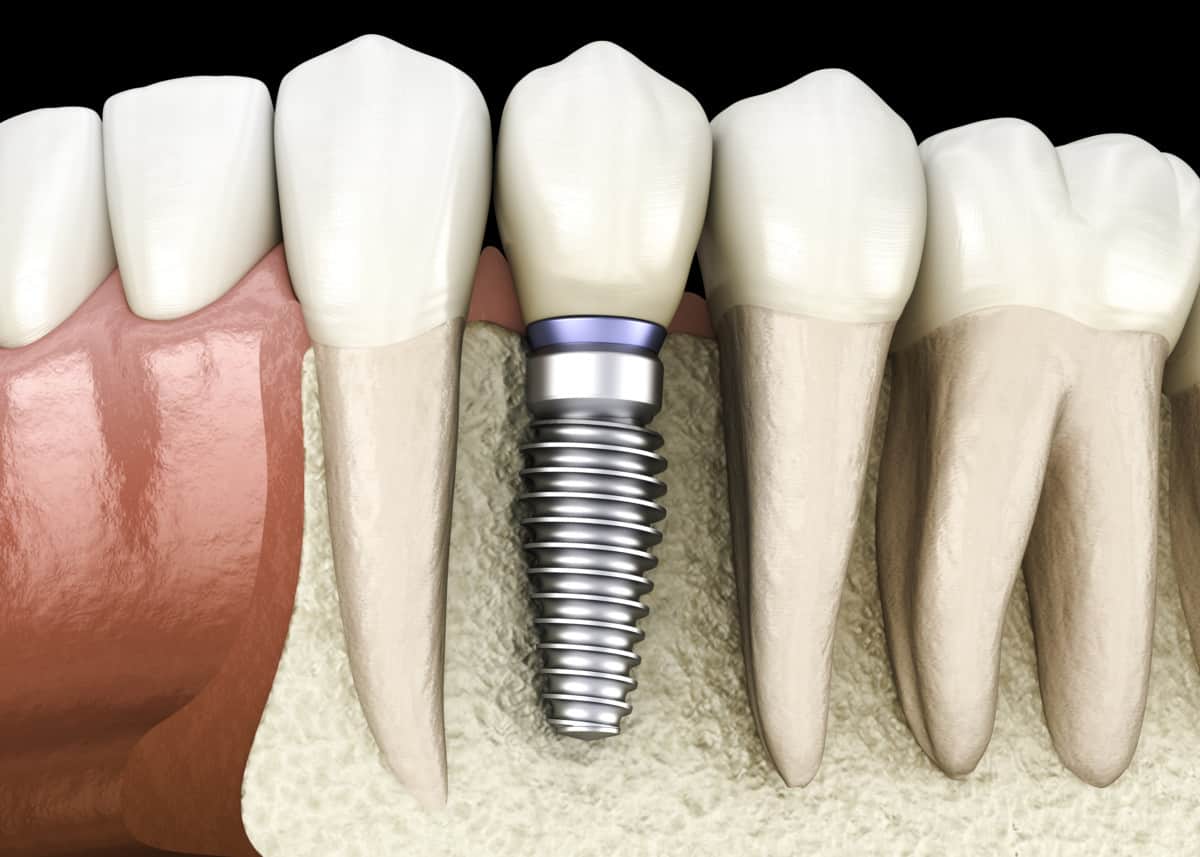
With more and more people opting for dental implant therapy, and access to dental implant treatment being around for many years now, we are observing more failing implants because there are just more of them! Failure of dental implants is a topic that I discuss with my patients who have dental implants because maintaining the bone level around the dental implants is key to prevent failure and I never want to see implants fail!
An implant can be replaced if there is enough dense bone to support a dental implant and often a bone graft is needed. Replacement implants have a success rate between 69% to 91%. Occasionally a replacement dental implant is not possible due to reasons of initial implant failure.
There is so much more information that needs to be discussed to get a true picture of why dental implants fail in the first place because the reason for failure impacts the ability to replace the implant and how difficult it will be to replace or even replace at all!
In this post, I give you all the information that I give to my patients, and even more that will help you understand if you have options for dental implant replacement!
Can you replace a dental implant? Everything you need to know!
Replacing a dental implant is a very involved procedure and the ability to replace the implant depends on multiple things.
Dental implants need to be replaced in certain circumstances because the implant is failing. Why the implant is failing determines the success of the replacement dental implant, or if the implant can even be replaced at all.
It is important to note that replacement implants have a success rate between 69% to 91% whereas initial dental implants have 95% success rate on average.
Reasons for dental implant failure
- gum disease (from both poor oral hygiene and systemic factors)
- poor installation/initial surgery complications
- smoking
- excess dental cement on the crown
- occlusal overload (too much trauma on implant from biting/clenching/grinding teeth)
All of these reasons for dental implant failure result in bone loss around the implant, and again, the reason for failure can impact how successful a replacement implant will be.
If there is aggressive gum disease (peri-implantitis) around the implant, the replacement implant will likely fail due to the same reason. The same is for smoking, if the implant fails from smoking and smoking is not stopped, a replacement implant is more likely to fail.
Read Now: Dental Implants: Best Way to Clean, Maintain and Care For
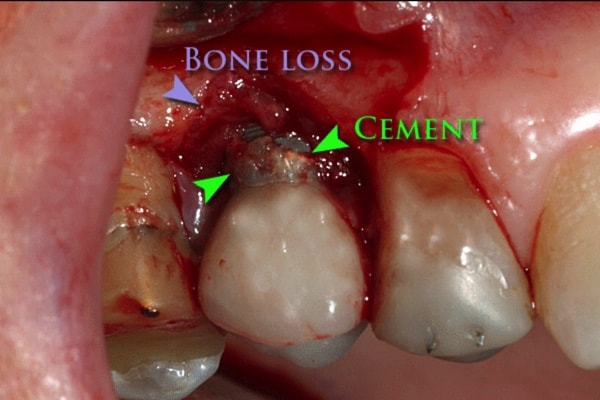
If the implant has failed due to excess cement or occlusal overload, when the dental implant is replaced, the new dental implant should not have these issues, as the dental professional doing your implant replacement therapy should be aware of this.
The dental professional will either make sure there is not too much cement or opt for a screw secured implant crown (so there is no dental cement used).
And if implant failure is from traumatic forces, the dental professional will make sure when the implant crown is put on, that it is kept out of occlusion more so, to prevent the teeth from hitting with too much force.
Replacement dental implants often need additional bone and/or soft tissue grafts, and have longer healing times. As well, a new abutment and crown will be needed for each new dental implant.
Implant success is completely reliant on the integration between the implant post and the jaw bone, and if the bone has started to recede down the implant post, it will not be as secure and can lead to failure.
If too much bone loss has occurred, the implant will not be able to be placed, and other options for tooth replacement will need to be explored. (see the bottom of this post for other tooth replacement options!)
Imagine the foundation of a building, if there is not enough material to support the foundation when the building is built on top of it, it will not be structurally sound and be at risk for collapse. This is the same for dental implants, if there is not enough bone to support the dental implant post, once a crown is placed on top and the implant becomes functional, the forces from eating and everyday tooth use can cause bone loss resulting in implant failure.
What are the signs of dental implant failure?
The dental implant in your mouth should feel like nothing at all, or at least feel like a natural healthy tooth with no pain, movement or swelling in the gums.
However, a slowly failing implant may not have any issues or pain that you notice, so please keep that in mind! That is why seeing a dental professional regularly is of the utmost importance.
Check out my Bridge and Implant Care Resources here! Everything you need to keep your implant clean and healthy I put together in one complete resource for you!
Everything you need to keep your implant clean and healthy I put together in one complete resource for you!
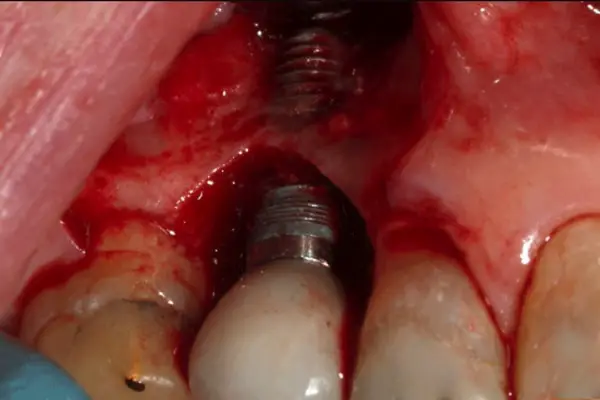
Signs of a failing dental implant include;
- Pain that is severe, throbbing
- Receding gums around the implant
- Moving/loose implant
- Swelling/inflammation in the gums around the dental implant
- Feeling of pressure around the dental implant
- Numbess/tingling of either the gums, lips and/or chin. This could indicate nerve damage
- A new sinus problem (implant could be touching the sinus)
- Discharge/pus coming out around the implant
If you are experiencing any of these issues with your dental implant, PLEASE see a dental professional immediately. It could mean the difference between keeping and losing your dental implant.
A failing implant needs to be attended to right away because if bone loss has already started, it can progress very quickly!!
Just from a personal perspective, I do believe having a second opinion is SO important when dealing with failing implants and the journey of replacing them. We all have to be honest and realize that there are some dental professionals that are out there for the sole reason of making money (like any profession), and they will sell you the dream of replacing your implants, without properly going over the risks of treatment and risk for failure. And sometimes, they will want to take out the initial implants right away without exploring all the options to save them.
When it comes to such situations I always recommend seeing a specialist in the field and have an expert opinion, and two is better than one. I never want to see anyone be taken advantage of!
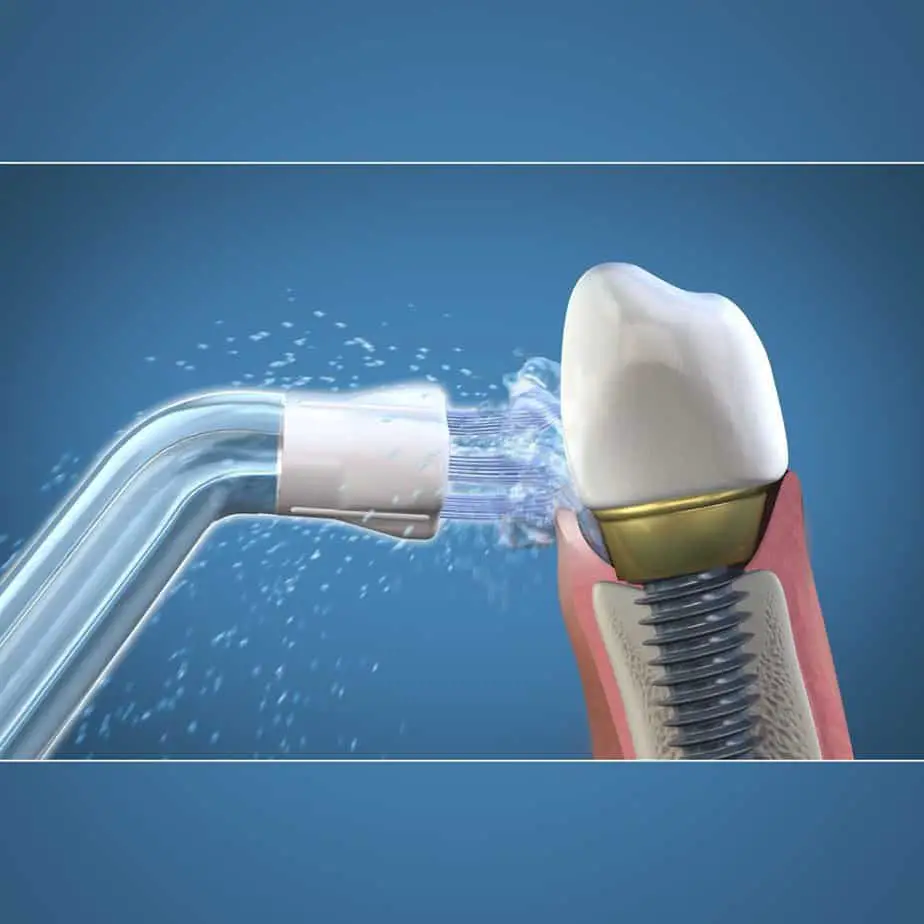
How to prevent dental implant failure.
Dental implants are not permanent (but neither are teeth). And they need to be taken care of to prevent issues.
Dental implants can fail due to gum disease the same as our natural teeth.
If the implant is not taken care of in terms of brushing, flossing and regular dental hygiene appointments, gum disease can start quickly and cause inflammation in the gum tissue, which can travel into the bone tissue and start to break down the bone that is supporting the implant.
Read Now: Dental Implants and How to Take Care of Them After Surgery
When you have existing implants in your mouth, you should definitely be seeing a dental professional regularly.
For all my patients who have dental implants, I check them at every appointment and take routine dental X-rays to assess the bone health around the implant, and I also observe the health of the gum tissue surrounding the implant to assess if peri-implantitis (gum disease around the implant) is present.
Seeing a dental professional regularly will prevent implant failure, and if issues do arise with the implant, they will be caught early and hopefully treated and prevent further damage, extending the lifespan of the dental implant.
Personal story: I have a patient who has 4 implants on the top arch of her mouth. She has a history of implant failure and comes to see me for her hygiene appointments every 3 months because of her oral health status and the presence of gum disease. She has also been a stress smoker, and in the last year she has picked up the habit again, which is contributing to her implants failing.
Her implants are essential because they replace all of her back teeth, allowing her to chew her food, and their failure will have a very large impact on her daily life. Myself and the dentist I work with have referred her to a specialist to have a more specialized treatment, but I do not see her implants lasting as she has increased her smoking and has become less adherent to her oral hygiene routines.
How long do dental implants last?
Dental implants can last 25 years to a lifetime with proper care. Dental implant crowns may need replacement every 5-15 years due to wear and tear. Location of implant, overall oral health, lifestyle habits, dentist’s skill, oral hygiene routine, and habits all impact dental implants’ longevity.
“The American Association of Oral and Maxillofacial Surgeons have concluded that dental implants placed here in the United States by a licensed dentist have a 95% success rate on average. “
The anatomy of a dental implant; three parts
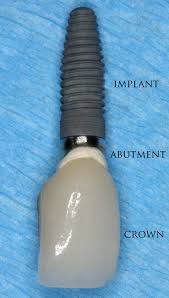
A dental implant is made out of three parts; the implant crown, abutment and the implant post. The implant post acts as the tooth roots and is integrated into the bone tissue. The abutment attaches the implant post to the implant crown.
Sometimes there can be issues with just the crown itself as it is susceptible to wear and tear like a natural tooth, and only the crown will need to be replaced, and not the implant post itself.
Other options for replacing a dental implant
There are only two other options for tooth replacement instead of an implant;
- bridge
- partial denture
If the dental implant cannot be replaced, the other options for tooth replacement should be explored. I never recommend leaving the space empty for many reasons, but the course of treatment is always the patient’s decision.
I really hope that this post has helped you 🙂
Have a great day and remember to keep smiling!
Holly 🙂

